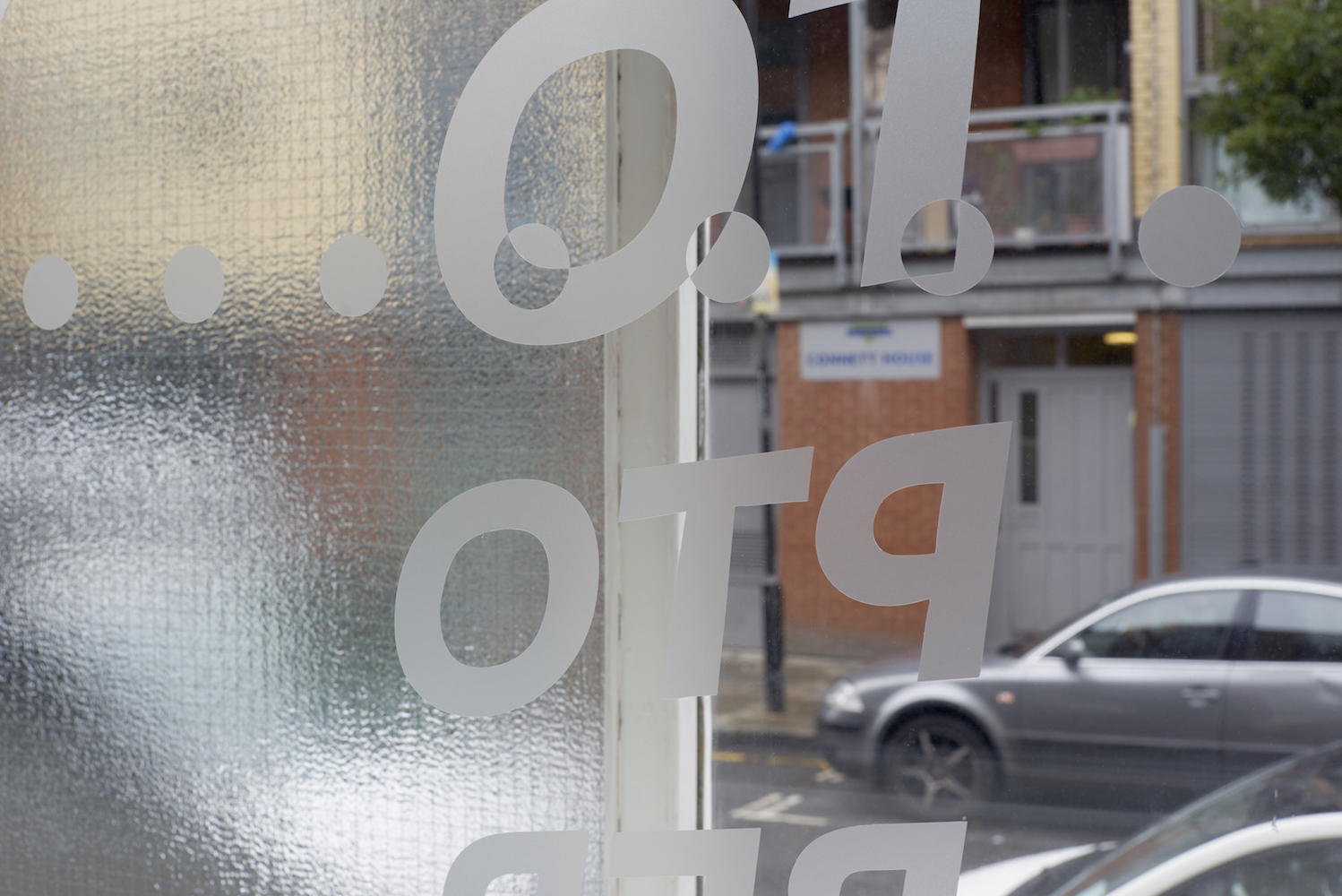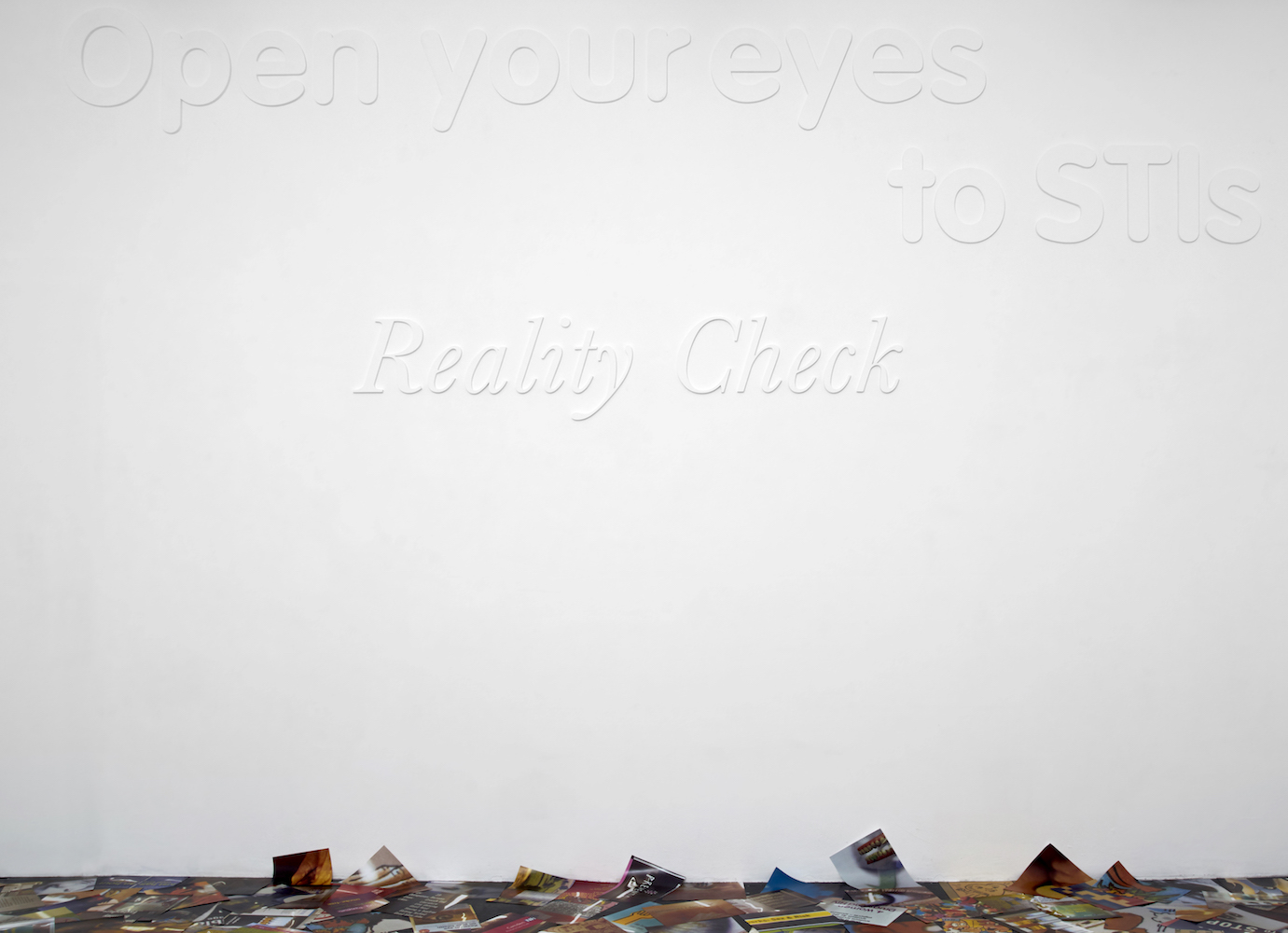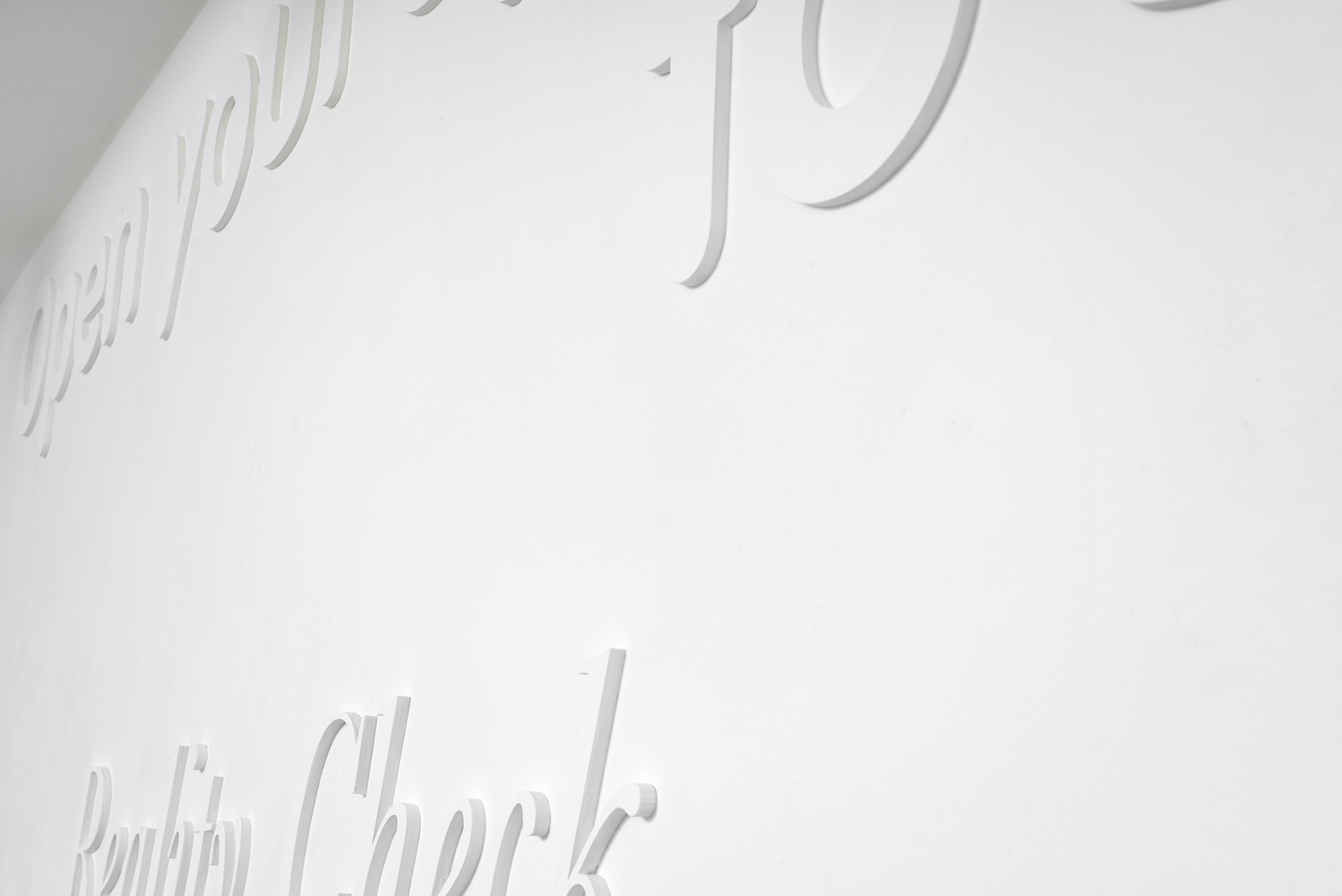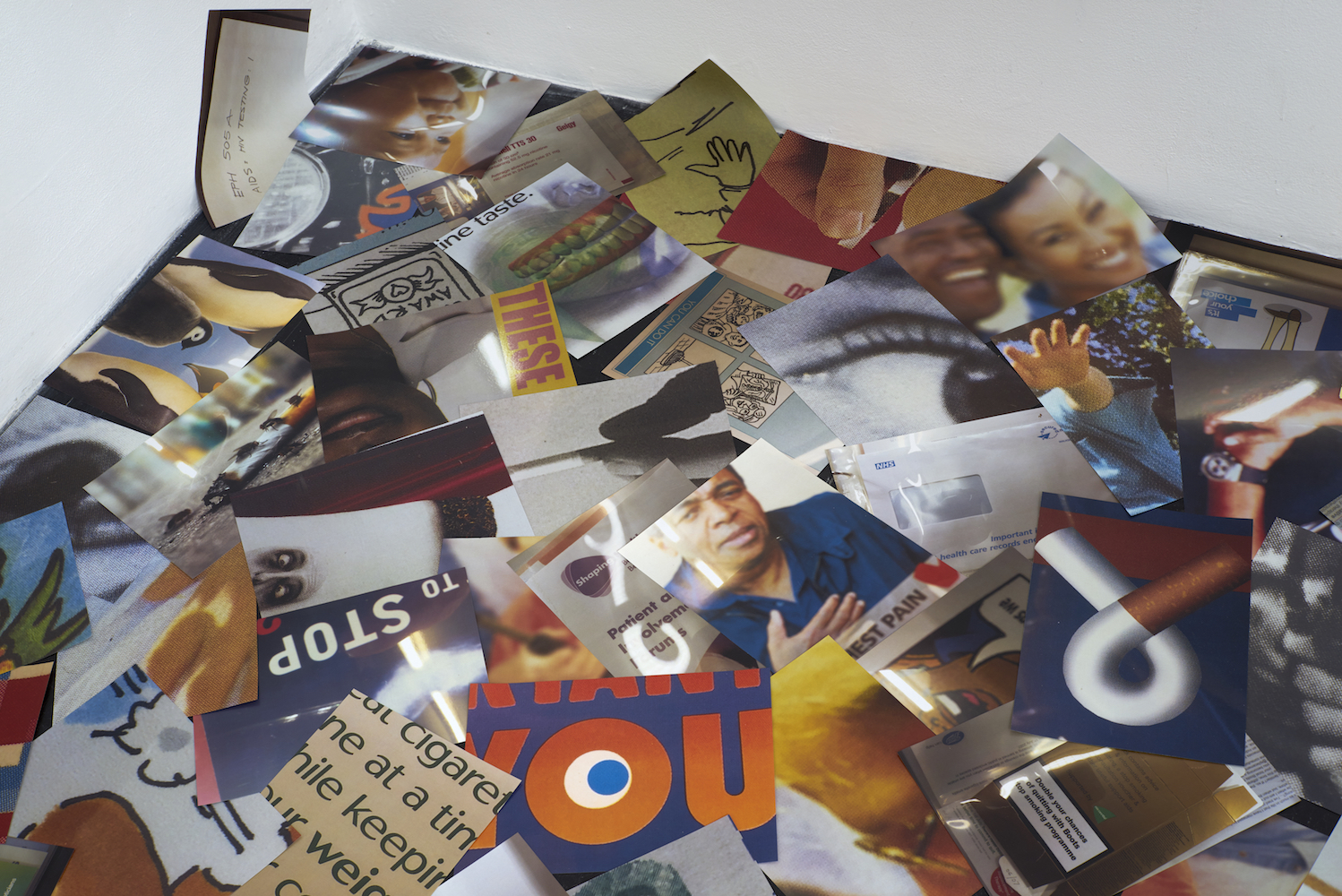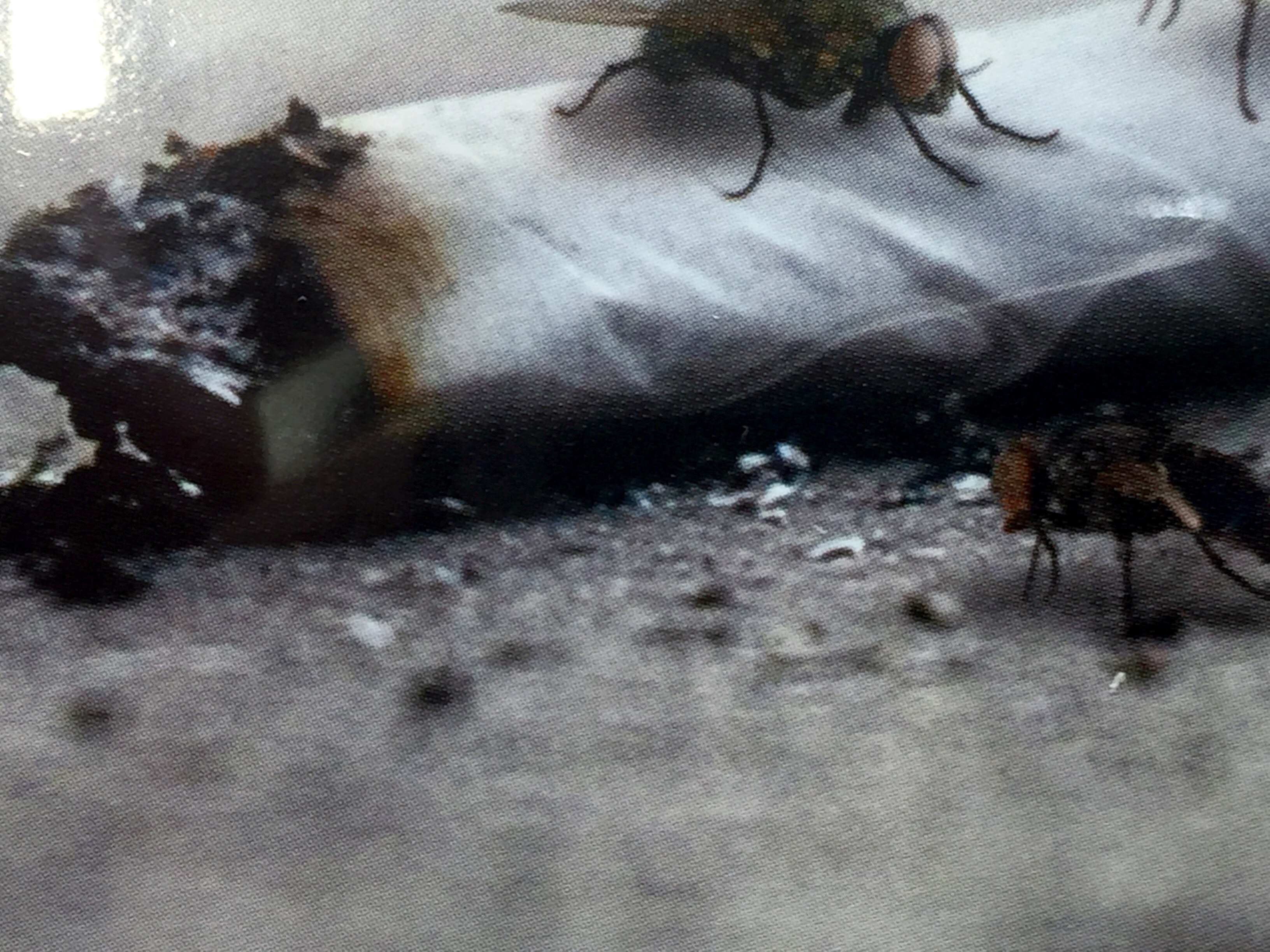
at Union, London
17 September - 23 October 2016
'CIGARETTES YOU BUY ON THE STREET MAY CONTAIN ANIMAL DROPPINGS'*
'[To understand] what advertising means is dependent on finding out how they mean, and analysing the way in which they work.' In the case of advertising materials distributed by the state, this how, or their form, is the way in which that policy is delivered to the electorate - it's about mediation and contact. Content is often interchangeable and cannot be separated from its form. The deceptive mythology of advertising requires us to believe that an advert is simply a vehicle for a message even when this message is clearly untrue. The 600 images covering the floor of Union Centre are taken from records of the Department of Health's most pressing concerns. They are reproduced here from an extensive archive of pamphlets, posters, stickers, envelopes, beer mats, postcards and stamps, all of which have been photographed through their archival-grade, plastic sleeves. Omitted from this collection are the materials that do not fit so easily within the medical archive and museum: the televised ads, large format prints, instagram images or posts by Public Health England's 'obesity' twitter. 'Their very existence in more than one medium gives them a sort of independent reality [linking] them to our own lives'. The scale of the influence of these campaigns, and how this then effects doctor-patient relationships, is yet to be adequately examined. Advertisements work to 'translate statements from the world of things'**: flies equate to rotting flesh, degradation, horror and abjection, they are decomposers and feed on faeces or the dead. They are usually repelled by smoke but here, through photomontage techniques, the smoke leaving the cigarette is like a soul leaving the body. Our senses are disrupted by this rearrangement of images and possibility is mistaken for actuality.
Healthcare practitioners are highly-trained and skilled in the practice and rehearsal of semi-scripted dialogue, the Guide to the Medical Interview and the Mental State Examination are examples of documents that form the foundations of our fictive lives. In 2012 the coalition government made revision to the Care Act that attempted to replace the 'statutory duty to provide health care' instead with a 'duty to promote healthcare'.*** Although this alteration was contested, the promotion of healthcare and the language of competition are not new constructs. Dr Michael Fitzpatrick, writer and retired GP, in conversation suggested that Tony Blair's self-acclaimed 'greatest achievement of his first thousand days in office was the establishing of NHS direct, a service that provided no medical care or treatment whatsoever. What it did do was acknowledge people's anxieties about their health, a recognition by government that a way of establishing a point of contact with an atomised and alienated electorate was through the medium of health.'**** The NHS Direct was discontinued in March 2014.
* Pamphlet, 2007.
** Judith Williamson, Decoding Advertising.
*** Allyson M Pollock & David Price, BMJ 2011;342:d1695 (regarding the coalition government's Health and Social Care Bill 2010-11).
**** Dr Michael Fitzpatrick, Transcript from an informal conversation, London, 28.08.16.
'STOPTOBER' is the second exhibition part of a programme curated by Rosanna Puyol at Union and follows Sanna Helena Berger 'A sequence which corresponds'.
Josh Bitelli's recent works include 'All Doors and No Exits' which opened in April at Cell Projects, London as part of 'A Partition', an ongoing research project co-founded with and curated by Rebecca Lewin. Bitelli presented a new performance for The Chisenhale Gallery's 21st Century programme in February this year. Solo projects include 'LimescaleTea' at tank.tv, London (2015); 'To Gaze at Ten Suns Shining' with Sarah Abu Abdallah at POOL, Hamburg (2015). Recent group shows include 'Pre-empty', Evelyn Yard, London (2016); 'CO-WORKERS - Network as Artist', Musée d'Art Moderne de la Ville de Paris (2015); 'Pavillon de l'esprit nouveau', Swiss Institute, New York (2015); 'Place of Dead Roads', screening with Felix Melia, Centre D'Art Contemporain, Geneva (2014); '89plus marathon', Serpentine Galleries, London (2013). Future projects include a performance at Wellcome Collection, November 2016. Bitelli has been awarded a Sharjah Foundation production grant for a collaborative project with Sarah Abu Abdallah.
Please join us for the opening on Friday 16 September, from 6 to 9pm.
Union Gallery
94 Teesdale Street
London E2 6PU
For further information please contact me at rosanna.puyol@gmail.com.

